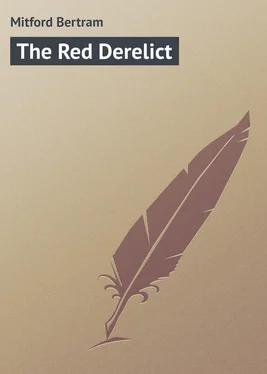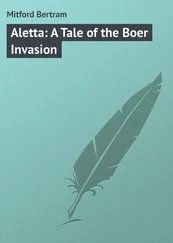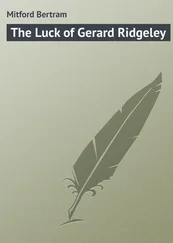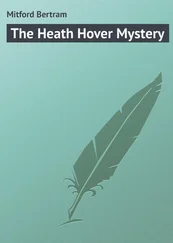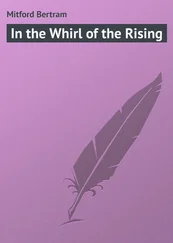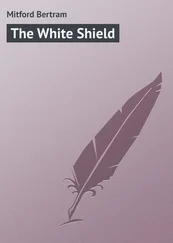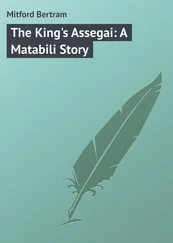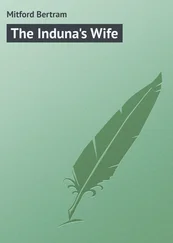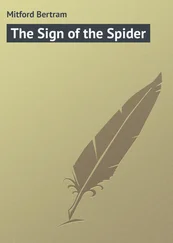Bertram Mitford - The Red Derelict
Здесь есть возможность читать онлайн «Bertram Mitford - The Red Derelict» — ознакомительный отрывок электронной книги совершенно бесплатно, а после прочтения отрывка купить полную версию. В некоторых случаях можно слушать аудио, скачать через торрент в формате fb2 и присутствует краткое содержание. Жанр: foreign_prose, на английском языке. Описание произведения, (предисловие) а так же отзывы посетителей доступны на портале библиотеки ЛибКат.
- Название:The Red Derelict
- Автор:
- Жанр:
- Год:неизвестен
- ISBN:нет данных
- Рейтинг книги:5 / 5. Голосов: 1
-
Избранное:Добавить в избранное
- Отзывы:
-
Ваша оценка:
- 100
- 1
- 2
- 3
- 4
- 5
The Red Derelict: краткое содержание, описание и аннотация
Предлагаем к чтению аннотацию, описание, краткое содержание или предисловие (зависит от того, что написал сам автор книги «The Red Derelict»). Если вы не нашли необходимую информацию о книге — напишите в комментариях, мы постараемся отыскать её.
The Red Derelict — читать онлайн ознакомительный отрывок
Ниже представлен текст книги, разбитый по страницам. Система сохранения места последней прочитанной страницы, позволяет с удобством читать онлайн бесплатно книгу «The Red Derelict», без необходимости каждый раз заново искать на чём Вы остановились. Поставьте закладку, и сможете в любой момент перейти на страницу, на которой закончили чтение.
Интервал:
Закладка:
“Really? Seriously, mind?”
“Seriously. But if you always turn your reading to such practical account as you did just now, it’ll be good for other people all along the line. It was even better than plucky, for it showed a quickness and readiness of resource rare among women, and by no means so widely distributed among men as we like to imagine.”
“How good of you to say so,” she answered, colouring up with pleasure. “But – oh, what a pity to have had to kill such a curious animal. Will the old Squire be very angry, do you think, Mr Wagram?”
“He will be sorry; but you must credit him with a higher estimate of the sanctity of human life for anger to enter his mind in this connection. I am sure he will feel only too thankful that a most disastrous accident has been averted.”
“Oh, I am relieved. Poor thing,” she broke off, standing over the dead gnu with a little shudder at the pool of blood which had trickled from the small hole made by the bullet. “It is very ugly, though.”
“Yes; it’s a sort of combination of goat and buffalo, and horse and donkey, to all outward appearance. Ah, here’s someone at last,” as two men approached. “Here, Perrin,” to the foremost, “how on earth did this fellow break out of the west park? Are the palings broken down anywhere?”
“Not as I knows on, sir,” replied the man, who was an under keeper. “I was round there myself this morning, and ’twas all right then. Reckon he must ha’ jumped. Them things do jump terrible high at times. Be you hurt, sir?” with a look at the other’s torn clothing.
“No; only a scratch. But this young lady might have been killed. You’d better go to the village at once and let Bowles know there’s a butchering job here for him, and the sooner he sets about it the better, or the light won’t last. Oh, and on the way tell Hood to go over now and make sure there are no gaps or weak places in the palings, or we shall have more of the things getting out I should never have believed one would have taken that leap.”
“Very good, sir,” replied the keeper, turning away to carry out his orders.
The girl, meanwhile, was watching Wagram with a whole-souled but half-furtive admiration, not undashed with a little awe. The fact of her rescue by this man in a moment of ghastly peril, and at considerable risk to himself, appealed to her less than did the cool, matter-of-fact way in which he stood there issuing his orders, as though no life-and-death struggle between himself and a powerful and infuriated animal had just taken place. Moreover, there was something in the way in which he gave his orders – as it were, the way of one to whom such direction was bound as by right to belong – that impressed her, and that vividly. Perhaps, too, the unconscious refinement of the man – a natural refinement characterising not only his appearance, but his manner, the tone of his voice, his every word – came especially home to her, possibly by virtue of contrast. Anyhow, it was there, and she hardly had time to disguise the growing admiration in her eyes as he turned to her again.
“Will you walk on with me to the Court and have a rest and some tea? We can send you home in the brougham.”
For a moment she hesitated. The invitation was wholly alluring, but to herself a perfectly unaccountable resolve came over her to decline it. It is just possible that the one word “send” had turned the scale. Had he offered to accompany her home she would probably have accepted with an alacrity needing some disguise.
“Oh no, thanks; I could not think of intruding upon you like that,” she answered. “I live just outside Bassingham, and a mere three-mile walk is nothing on a lovely evening like this.”
“Are you sure you are doing what you would prefer?” he urged.
“Quite. Oh, Mr Wagram, how can I thank you enough? Why, but for you I should be in as many pieces as my poor bicycle.”
“And but for you, possibly, so should I,” he laughed.
“Yes; only you would not have been there at all but for me, so that I am still all on the debtor’s side,” she rejoined, flashing up at him a very winning smile.
“Will you favour me with your address – here,” holding out a pocket-book open at a blank leaf. “And – er – you seem to have the advantage of me as to name.”
“Have I? Why, so I have,” (writing). Then handing it back he read:
“Delia Calmour, Siege House, Bassingham.”
“Oh, you live in Bassingham, then?” he said, in a tone which seemed to her to express surprise at never having seen her before.
“Yes; but I have been away for two years,” she answered in implied explanation which was certainly not accidental. “I have only just come home.”
She hoped he would question her further; but he did not.
“Good-bye, Mr Wagram,” putting forth her hand with a bright smile. “I shall return by the main road. It’s much shorter – besides, I’ve had enough adventure for one afternoon.”
“Well, if you won’t reconsider my suggestion.”
“Thanks, no; I had really better get back.”
“And,” he supplemented, “again let me remind you that the utter wreck of your bicycle is our affair. Oh, and by the way – er – in case you are put out by the want of it even for a day or two in this splendid weather, Warren, in Bassingham, keeps very good machines on hire – you understand, our affair of course. I will send him in word the first thing in the morning.”
“Now, Mr Wagram, you are really too good,” she protested with real warmth. “I don’t know whether I ought even to think of taking you at your word.”
“Ought? But of course you must. It’s a matter, as I said before, of hard, dry law, and damage. Good-bye.”
They had reached the gate by this time, and closing it behind her, Wagram raised his hat and turned back to where lay the dead gnu. Then, as the men he had sent for had arrived, and he had given directions as to the careful preserving of the head, he moved homeward.
The air seemed positively to thrill with the gush of bird-song as the last rays of dazzling gold swept over the vivid greenery, ere the final set of sun. Passing the chapel, a Gothic gem, set in an embowering of foliage, Wagram espied the family chaplain seated in front of his rose-grown cottage, reading.
“Evening, Father,” he called out.
The priest jumped up and came to the gate. He was a man about Wagram’s own age, or a shade older, a cultured man, and possessed of a fund of strong practical common sense, together with a keen sense of humour. The two were great friends.
“Come in, come in, and help a lonely man through a lonely half hour, or as many half-hours as you can spare; though I suppose it’s getting too near your dinner time for that.”
“Why don’t you stroll up with me and join us?” said Wagram, subsiding into a cane chair.
“Thanks, but I can’t to-night, and that for more reasons than one. Now, what’ll you be taking?”
“Nothing, thanks, just now,” answered Wagram, filling his pipe. “I’ve got a mighty unpleasant job sticking out if ever there was one. Went out to knock over a rabbit or two, and knocked over one of the blue wildebeeste instead. How’s that?”
The priest gave a whistle.
“I wouldn’t like to be the man to break the news to the old Squire,” he said, “unless the man happened to be yourself. Did you kill it?”
“Dead as a herring, or rather, the girl did.”
“The girl did! What girl?”
“Why, the one the brute was chevying. Of course I had to get between, don’t you see?”
“I don’t. You omitted the trifling detail that the said brute was chevying anybody. Now, begin at the beginning.”
Wagram laughed. This sort of banter was frequent between the two. The priest reached down for the half-smoked pipe he had let fall, relit it, and listened as Wagram gave him the narrative, concise to baldness.
Читать дальшеИнтервал:
Закладка:
Похожие книги на «The Red Derelict»
Представляем Вашему вниманию похожие книги на «The Red Derelict» списком для выбора. Мы отобрали схожую по названию и смыслу литературу в надежде предоставить читателям больше вариантов отыскать новые, интересные, ещё непрочитанные произведения.
Обсуждение, отзывы о книге «The Red Derelict» и просто собственные мнения читателей. Оставьте ваши комментарии, напишите, что Вы думаете о произведении, его смысле или главных героях. Укажите что конкретно понравилось, а что нет, и почему Вы так считаете.
